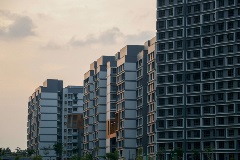
Navigating Bill 10: What Ontario’s new law means for residential landlords
As published on Canadian Apartment on Wednesday, June 18, 2025
By: John Fox, Sarah Hooper, and Alexander Caputo
Earlier this month, Ontario introduced Bill 10, the Measures Respecting Premises with Illegal Drug Activity Act, 2025, officially making it law. While the legislation aims to boost public safety by holding landlords accountable if they knowingly allow illegal drug production or distribution on their rental properties, it broadens liability and raises critical questions about enforcement and fairness. Here, John Fox, Sarah Hooper, and Alexander Caputo of Robins Appleby LLP share their tips and insights to help landlords navigate the new Act.
What prohibitions are included in Bill 10 landlords should be aware of?
There are two main prohibitions, as follows:
- Knowingly permitting illicit activity (section 2) – Landlords have a defence if they take “reasonable measures” to prevent their properties from being used for the production or trafficking of illicit drugs (a “prescribed offence”). The exact definition of “reasonable measures” remains unclear, meaning landlords do not know what actions will be considered sufficient to mount a defence.
- Knowingly possessing proceeds from a prescribed offence (section 3) – Unlike the first provision, this section does not offer landlords a “reasonable measures” defence, making it a more severe liability. Whether accepting rent payments after discovering illegal activity would violate this rule remains uncertain, leaving landlords vulnerable to unintended consequences
What can authorities do?
The Act provides law enforcement with extensive powers, including the ability to remove individuals from rental properties, close commercial properties, seize property tied to, restrict access to premises, and in certain cases, arrest suspects without a warrant, all in relation to a prescribed offence. Additionally, obstructing officers in their duties may result in penalties under section 10 of the Act.
What counts as “reasonable measures”?
Landlords are left wondering: How can I prove I took “reasonable measures”? Does that mean adding security cameras or increasing property inspections? Without clear guidance, some housing providers may struggle to ensure compliance, potentially leading to unintended legal trouble.
Penalties are steep, with first-time infractions carrying fines ranging from $10,000 to $250,000, and repeat offenses accruing daily penalties. Given the risks, landlords may feel pressured to adopt stricter oversight—whether through tenant screening, surveillance, or proactive lease enforcement.
How will this impact non-profit housing?
Non-profit landlords—particularly those providing supportive housing for vulnerable tenants—face unique challenges under this Act. The law holds directors, including volunteer directors, personally liable, making board membership riskier for those working with high-needs populations. Additionally, any requirement to implement expensive security measures could force non-profits to raise rent or cut services, further shrinking Ontario’s affordable housing stock. If tighter enforcement discourages organizations from supporting vulnerable communities, the housing crisis could worsen for those at risk.
What comes next?
While the Bill 10 aims to curb illegal drug activity, it also raises serious concerns about fairness, clarity, and practical enforcement. Landlords now bear the burden of demonstrating they took “reasonable measures”, but without clear guidelines, the risks—especially for non-profits—are substantial. The regulations are yet to come. Before they do, more consultation with housing experts, legal professionals, and tenant advocates will be crucial to refining the law and protecting responsible landlords and their directors.
As Partner and Head of Affordable & Social Housing at Robins Appleby LLP, John Fox is an Ontario lawyer with more than 30 years’ experience in housing development law. He advises private, public, and non-profit clients on acquisitions, financing, and construction involving below-market housing. Formerly with Toronto Community Housing, he has been featured on CBC Metro Morning, is a regular speaker on housing, has chaired two major non-profit boards, and presently serves on two non-profit real estate advisory boards.
At Robins Appleby, we have been providing legal advice for over 70 years to entrepreneurs, businesses, financial institutions, and foreign companies operating in Canada. Located in Toronto's financial district, our firm is trusted by clients to help solve critical, time-sensitive issues. We offer a wide range of legal services including business and transactions, affordable and social housing, litigation and dispute resolution, commercial real estate development, tax law, employment law, and estate planning.

/john-fox.tmb-0.jpg?sfvrsn=4c040103_2)
.tmb-0.jpg?sfvrsn=d43d7460_1)
.tmb-0.jpg?sfvrsn=d9428995_1)
.tmb-0.jpg?sfvrsn=1205d725_1)
aaf97964-4e5a-4a66-89d1-796dd73c8efc.tmb-0.jpg?sfvrsn=d3c471f6_1)
7819d3e6-b61f-4777-af38-8eb2e8752483.tmb-0.jpg?sfvrsn=720a0f66_1)
.tmb-0.jpg?sfvrsn=159421c0_1)